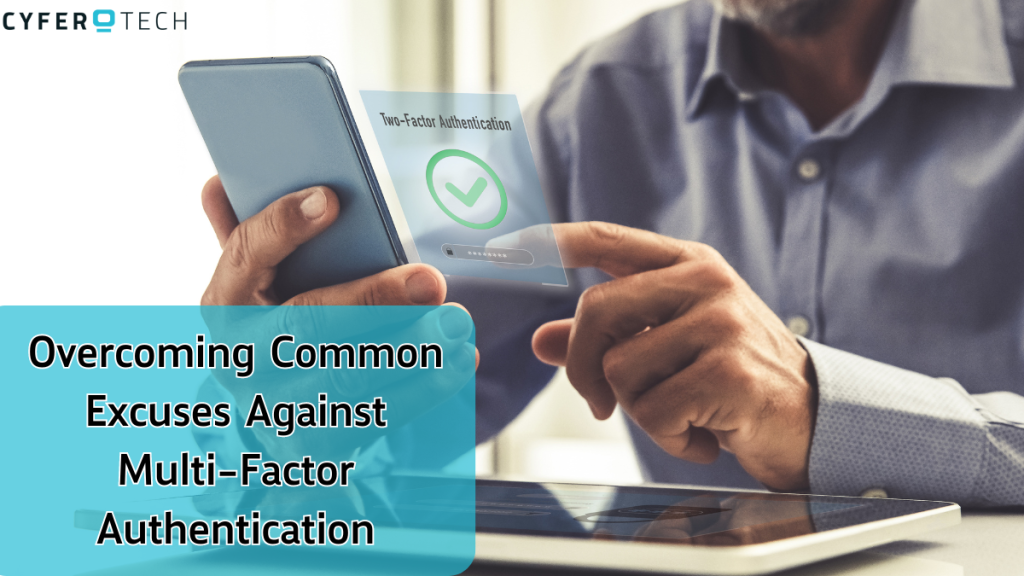At Cyfer Tech, we understand the critical importance of multi-factor authentication (MFA) in safeguarding our digital assets. Yet, despite its proven effectiveness, many organizations encounter resistance from users, management, and even IT teams. Here, we address the ten most common excuses for avoiding MFA and provide effective counterarguments to ensure your organization can bolster its security posture.
My password is already strong enough
While a robust password is a good start, it isn’t sufficient on its own. With cyberattacks becoming more advanced, even the best passwords can be compromised. MFA adds an additional layer of security, ensuring that even if passwords are stolen, your account remains protected.
I don’t want to use my phone number for MFA
You don’t need to use your phone number. There are alternatives like authenticator apps that don’t require personal contact information. These apps can provide secure, convenient MFA without compromising personal data.
My phone number will be used for marketing or sold
Reassure your employees that their information is safe. Your IT department or MFA provider should have strict policies against using or selling personal data for non-security purposes, complying with privacy guidelines.
MFA is too new and untested
MFA has been around for a long time. For instance, banks have used debit cards with PINs—an early form of two-factor authentication—for years. Emphasizing this can help alleviate concerns and show the reliability of MFA.
Our IT team is too busy with other priorities
Implementing MFA can prevent more severe issues in the future, such as ransomware attacks that could halt operations. Without MFA, the risk of security breaches is higher, ultimately increasing the workload for your IT team.
MFA setup is too complicated
Modern MFA solutions are user-friendly and typically require just a single click to enable. Gone are the days of complex setups. Most applications now include easy-to-use APIs that simplify the MFA implementation process.
MFA doesn’t work with our older systems
Today’s MFA solutions are designed to be compatible with a wide range of systems, including legacy applications. Techniques like identity orchestration and out-of-band MFA can integrate with older systems, mitigating risks without major overhauls.
The risk doesn’t justify the investment in MFA
The cybersecurity landscape has changed significantly. With the move to cloud services and remote work, strong authentication is essential. MFA is a crucial part of a layered security strategy, protecting against both internal and external threats.
I don’t understand MFA well enough to use it
Education is crucial. Simplifying the concept of MFA and providing straightforward explanations can make users more comfortable. Communicating the importance of security and how MFA protects their data is essential.
I don’t have anything worth stealing
Every piece of personally identifiable information (PII) is valuable to cybercriminals. Even if you think you have nothing worth stealing, hackers target all kinds of data for fraudulent activities. Major breaches at companies like Equifax and Marriott have shown that everyone is a potential target.
Conclusion
By addressing these common excuses and providing clear, factual counterarguments, organizations can overcome resistance to MFA and significantly enhance their security measures. At Cyfer Tech, we are committed to helping our clients implement effective security strategies, including the critical adoption of multi-factor authentication. Let’s work together to ensure a safer digital environment for all.

